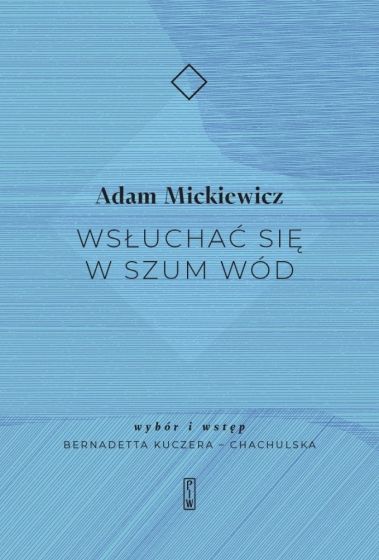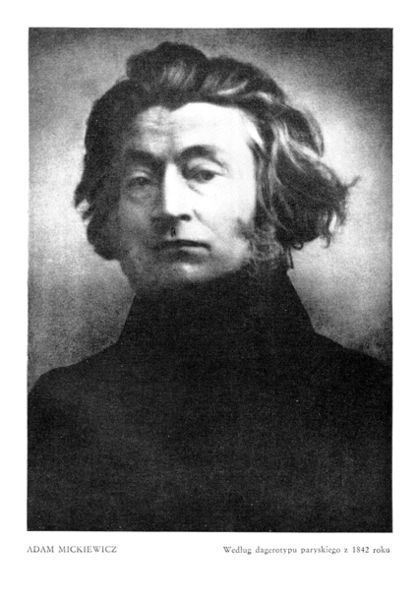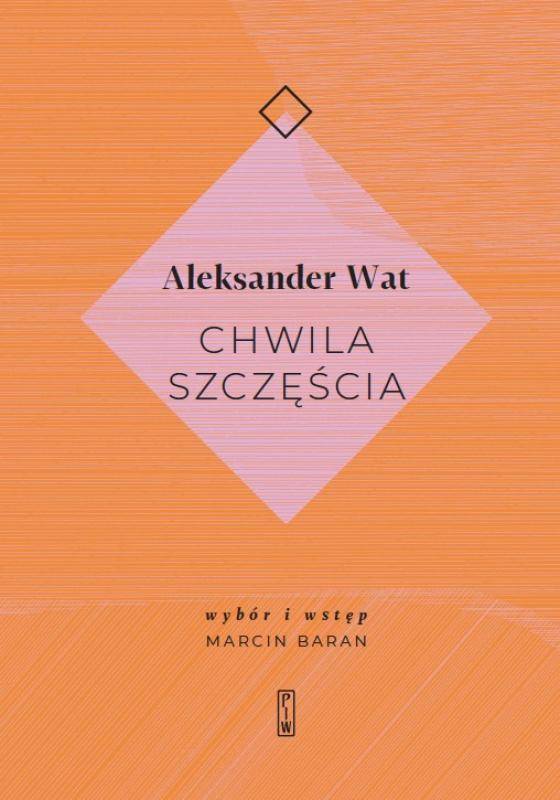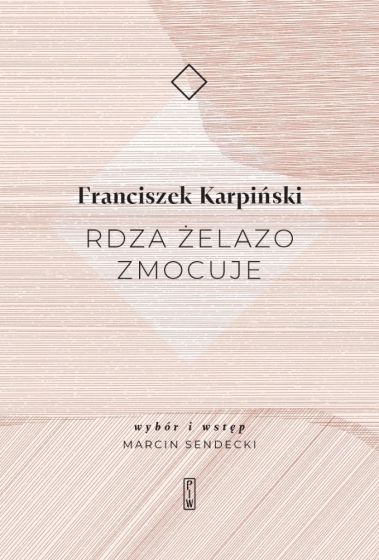
Part of Series
"W serii „Poeci do kwadratu” Bernadetta Kuczera–Chachulska przedstawia autorski wybór wierszy Adama Mickiewicza „Wsłuchać się w szum wód”. Wybór poprzedzony jest osobistym esejem na temat życia i twórczości romantycznego wieszcza. Znajdą się w nim wszystkie najpiękniejsze wiersze i ballady Mickiewicza, a także fragmenty poematów, dramatów, czy „Pana Tadeusza”. Każdy wybór wierszy, jak pisze autorka, jest rezultatem wieloletniego obcowania z Poetą, doświadczeń kształtujących się na linii dialogu ja – Poeta. Tak stało się i tutaj. „Jest zatem ten wybór w pewien sposób „dowolny”, ale jeśli zrozumieć naturę „doświadczania” tekstu poetyckiego weryfikowanego przez czas – zupełnie niedowolny. Jest też tak, że określona liczba wierszy czy zwłaszcza fragmentów dużych dzieł Mickiewicza nie mogła się w książce pojawić ze względu na objętościowy projekt serii, wybrano zatem – przede wszystkim w przypadku obszernych dzieł poety – namiastki (fragmenty), dla skromnej próby „całości”. I odwrotnie, ze względu na tę całość pojawiły się – zwłaszcza w pierwszej części wyboru – wiersze, które w jakiś sposób wypełniają liryczny wizerunek poety, przygotowują do lektury kolejnych cząstek.” Poezja Mickiewicza jest dzisiaj nie tylko chętnie czytana, ale także stanowi punkt odniesienia dla polskiej poezji, także współczesnej. Mickiewicz bowiem jest „bezwzględnym mistrzem słowa, o czym mówili między innymi Julian Przyboś (kiedyś) i Czesław Miłosz (nie tak dawno temu). Obaj zresztą podkreślali jednocześnie niezwykły realizm poety.” Mickiewicza się czyta, naśladuje, albo z nim dyskutuje. Każdy ma swojego „ulubionego Mickiewicza”, tak więc przedstawiany wybór wierszy jest tylko jedną z możliwych propozycji, ale niezwykle interesującą.
Author

To a Pole, the name Adam Mickiewicz is emblematic of Polishness and greatness. What Homer is to the Greeks, or Shakespeare to the English, Mickiewicz is to the Poles. He is a cultural icon, a name inextricably connected with Polish literature and history, and one mentioned with pride. Mickiewicz stands out in the consciousness of Poles both as a man of letters and a political leader. Despite his unquestionable status and fame, however, much of Mickiewicz's biography is shrouded in mystery. Even the generally accepted date of his birth, December 24. 1798, is uncertain, since it hasn't been determined whether it refers to the Gregorian or the Julian calendar. Nor has it been established conclusively whether Mickiewicz was born in Nowogrodek or at Zaosie, a mile or so apart. Many biographical facts, particularly those pertaining to his relationships with women, were deliberately obscured to preserve a flawless public image of the poet. Likewise, his interest in mysticism and involvement in mystical cults tended to be minimized, especially during the years of Communist rule in Poland when the official line was to shun spirituality of any kind, not to expose the poet to ridicule. Mickiewicz's son. Władysław, can be held partially responsible for this state of affairs, but he is not the only one. Having gained control of his father's papers after the poet's death, Władysław Mickiewicz destroyed various documents which might have potentially tarnished his father's public image. Likewise, many critics and scholars tended to overlook significant facts in the poet's biography, as well as significant themes and issues in his writing, to sustain the idealized view of Mickiewicz as a Polish national bard. This tendency to carefully "whitewash" Mickiewicz is hardly surprising. Born three years after the final partition of Poland, Mickiewicz became a spiritual leader of the Polish nation. An ardent patriot, he animated the Polish national spirit through his poetic, dramatic and political writings, providing hope and spiritual sustenance to Poles under the Russian, Prussian and Austrian rule, as well as to the many exiles, particularly the emigré circles in Paris, where he settled in 1832. Given the history of Poland and the long streak of political oppression and subjugation, the need for heroes and the idealization of Mickiewicz as a leader are perfectly understandable. Yet already in the 1930s, there were critical voices against the bowdlerization of Mickiewicz's work (since some editions of his works eliminated the more racy passages) and objections were raised against the cover-up in renditions of his biography. The prominent critic, Tadeusz Boy-Źieleński, for instance, in his work "Brązownicy" objected to the distortions of facts and the "sins of omission" in critical writings on Mickiewicz. In recent years, a much more vast and thorough re-examination of Mickiewicz' life and oeuvre has occurred. This is partially due to the overall re-examination of Polish history and Polish literary tradition after the collapse of Communism and, generally. a much greater openness in discussions of various issues previously relegated to the sphere of national taboos. Thus, much has been written lately about the white spots in Mickiewicz's biography. particularly about his mystical leanings and the Jewish origin of his mother. The evidence of Mickiewicz's fascination with mysticism is overwhelming, and there is some basis for the allegation of his mother's Jewishness. (quoted from Regina Grol's piece posted on InfoPolan, University of Buffalo's website; for continuation see link below)


